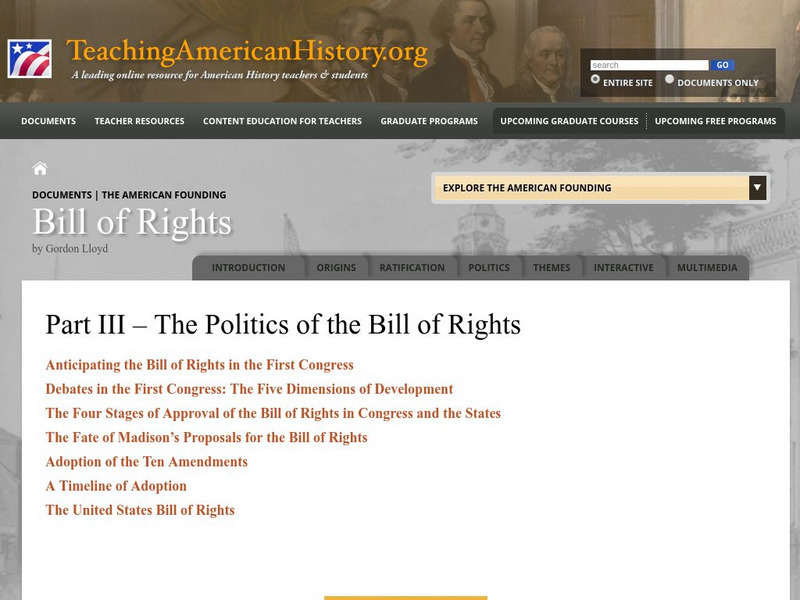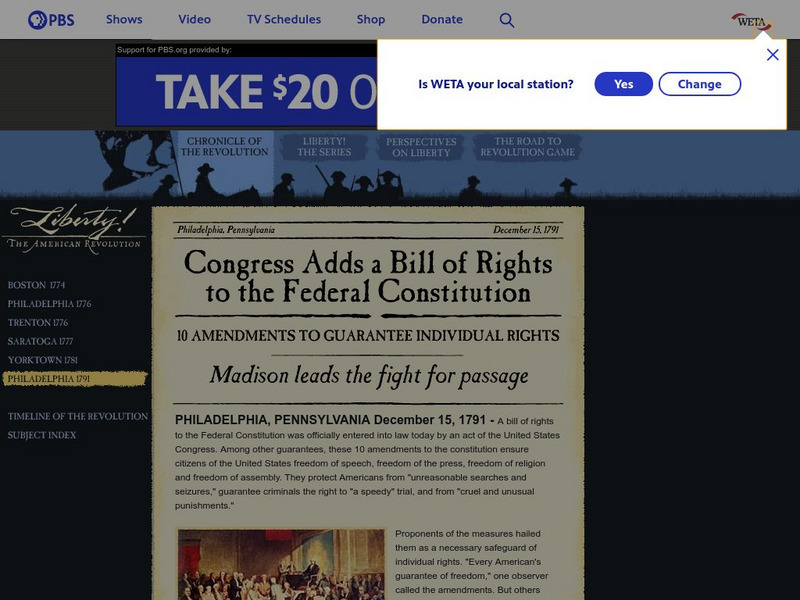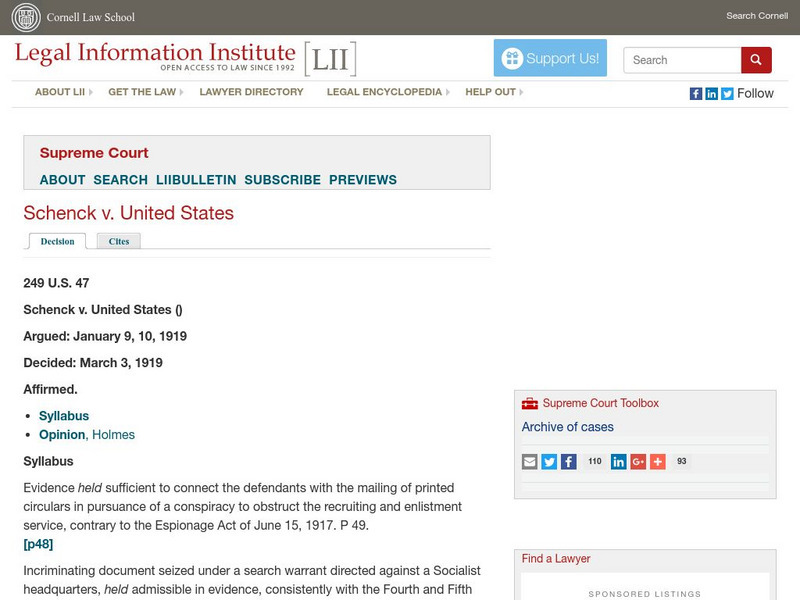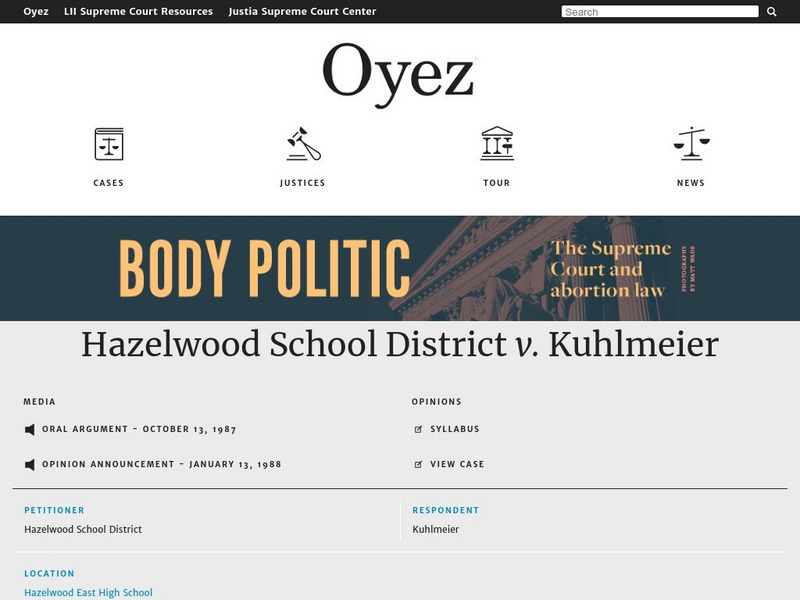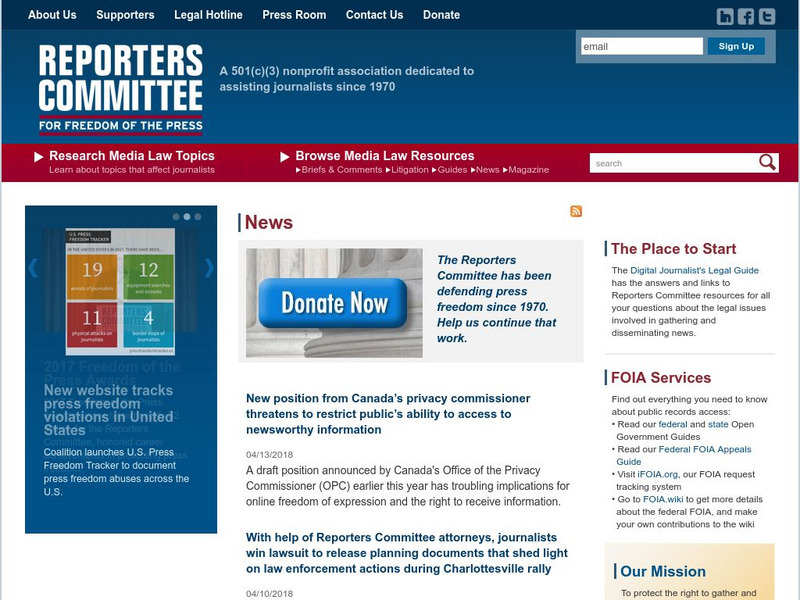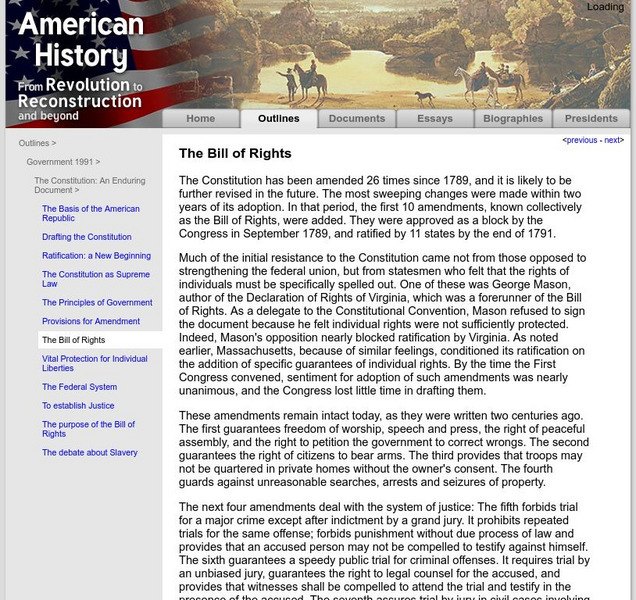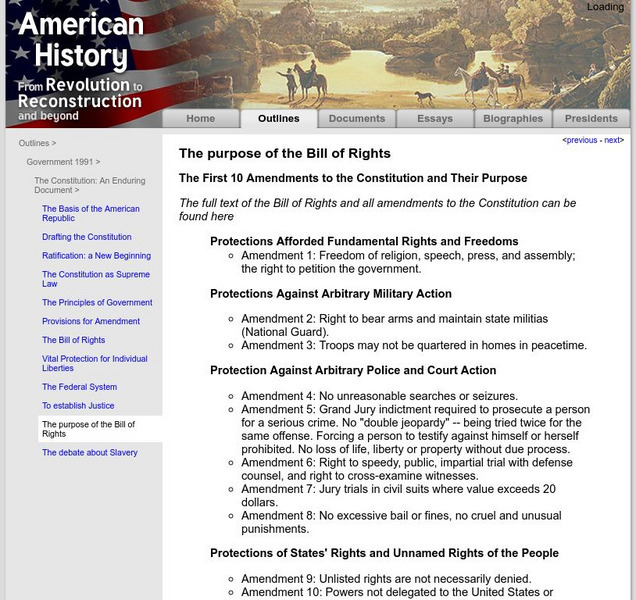Hi, what do you want to do?
Library of Congress
Loc: America's Story: Bill of Rights
The Bill of Rights was adopted to protect each United States citizen's rights. Learn about how the Bill of Rights was formed and the protections it guarantees to Americans.
Other
Our Courts: Bill of Rights: You Mean I've Got Rights? [Pdf]
A great, active lesson about the Bill of Rights. Students compare rights they think they should have with the rights in the actual amendments to the U.S. Constitution. The language of the amendments is broken down into simpler English so...
US Government Publishing Office
U.s. Government Publishing Office: First Through Tenth Amendments: Bill of Rights [Pdf]
A discussion of how the First through Tenth Amendments to the Constitution came to be written.
US National Archives
Nara: Treasures of Congress: The First Congress the Bill of Rights
Visit The National Archives & Records Administration's website on the Bill of Rights. The site gives some background information on the drafting of the Bill of Rights, lets you view the text to the document, lets you view an image of...
Teaching American History
Teaching American History: The Politics of the Bill of Rights: Part Iii
Investigate what the politics were leading to the creation of the Bill of Rights. Identify how the debates in the first congress led to the stages of approval and ultimately the adoption of the ten amendments to the U.S. Constitution.
PBS
Pbs Liberty!: Congress Adds a Bill of Rights
Informative site recounting the events of December 15, 1791, when the Bill of Rights was added to the Constitution. Learn about the Bill of Rights and the freedoms it was designed to protect!
PBS
Pbs News Hour Extra: Supreme Court Considers Free Speech and Protests
Hateful as these actions may seem to many people, do groups still have the right to protest under the First Amendment? Read about the case that the Supreme Court is considering involving protests at a military funeral.
iCivics
I Civics: West Virginia State Board of Education v. Barnette (1943)
This mini-instructional activity covers the basics of the Supreme Court's decision that it was unconstitutional for a state to force learners to salute the flag and recite the Pledge of Allegiance. Students learn how the interests of...
PBS
Wnet: Thirteen: The Supreme Court: Landmark Cases: Schenck v. u.s. (1919)
PBS offers a summary of the landmark Supreme Court case of Schenck v. U.S. which dealt with when an individual's free speech rights under the First Amendment presented a "clear and present danger." This case has since been overturned.
iCivics
I Civics: Minersville v. Gobitas (1940)
This mini-instructional activity covers the basics of the Supreme Court's decision that allowed schools to require students to salute the flag and recite the Pledge of Allegiance. Students learn about the First Amendment and how the...
iCivics
I Civics: Tinker v. Des Moines (1969)
This mini-lesson plan covers the basics of the Supreme Court's decision that extended First Amendment protections to students in the classroom. Students learn about the concept of symbolic speech and how students gained the right to...
iCivics
I Civics: Lyng v. Northwest Indian Cemetery Protective Association (1988)
This mini-lesson examines the Supreme Court case that pitted the interests of government economic projects against the religious rights of American Indians. Students learn about the religious protections of the First Amendment's Free...
Cornell University
Cornell University: Law School: Schenck v. United States (1919)
Features a syllabus of the landmark Supreme Court case of Schenck v. United States which decided that the defendant's right to criticize the draft was not protected by the First Amendment.
Illinois Institute of Technology
Hazelwood School District v. Kuhlmeier (1988)
Resource contains information on the case including how the justices voted, an audio file of the Oral Argument and an abstract of the case regarding high school journalists and their call for First Amendment (free speech) rights.
Reporters Committee for Freedom of the Press
Rcfp: The Reporters Committee for Freedom of the Press
This non-profit organization collects instances of First Amendment and Freedom of Information cases throughout the United States and reports on the facts and outcomes. An interesting cross section from this section of our law.
PBS
Pbs Teachers: Church and State Separation: Challenge and Debate (Lesson Plan)
Describes the elements of the U.S. Constitution's First Amendment as it relates to the separation of church and state and freedom of religion. Speculates on the probable constitutional issues associated with the separation of church and...
Bill of Rights Institute
Bill of Rights Institute: Additional Amendments
The Constitution contains within itself the process of changing it. The amendment process is described in Article 5. Amendments can be proposed in Congress when 2/3rd of both Houses agree. The states can play a role in proposing changes...
Bill of Rights Institute
The Bill of Rights Institute: The Bill of Rights
The first 10 amendments to the Constitution make up the Bill of Rights. Written by James Madison in response to calls from several states for greater constitutional protection for individual liberties, the Bill of Rights lists specific...
University of Groningen
American History: Outlines: The Bill of Rights
Article on the history and purpose of the Bill of Rights which spelled out specific protections in the first 10 amendments of the Constitution.
Khan Academy
Khan Academy: Us History: 1754 1800: The Bill of Rights
The first ten amendments to the US Constitution guarantee citizens' essential freedoms and rights.
Constitutional Rights Foundation
Constitutional Rights Foundation: Illustrated Bill of Rights
For elementary students, an easy to understand illustrated explanation of the Bill of Rights is offered.
Reporters Committee for Freedom of the Press
Rcfp: The Ethics of Recording Conversations [Pdf]
This cleverly designed article contains the laws concerning taping and recording conversation in regard to privacy rights. From the Reporters Committee for Freedom of the Press.
University of Groningen
American History: Biographies: George Mason the Virginia Bill of Rights
The Virginia Bill of Rights was the framework for the U.S. Constitution's Bill of Rights. Some of Mason's actual phrasing appear in the first ten amendments passed fifteen years later. He is credited for authoring the first American...
University of Groningen
American History: Outlines: The Purpose of the Bill of Rights
Text of the first ten amendments of the Constitution found in the Bill of Rights.





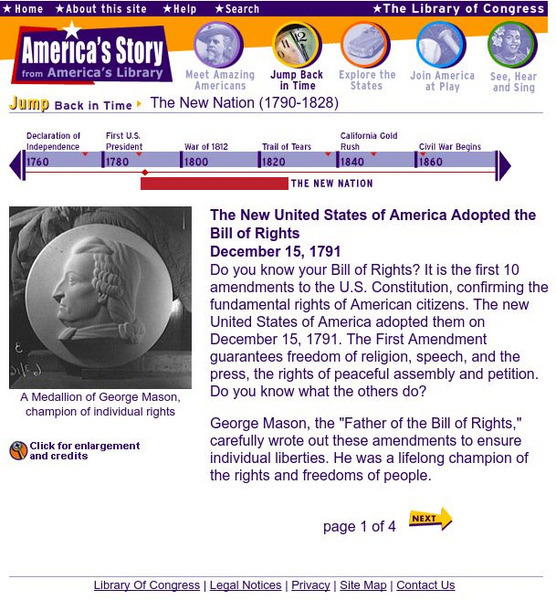
![Our Courts: Bill of Rights: You Mean I've Got Rights? [Pdf] Lesson Plan Our Courts: Bill of Rights: You Mean I've Got Rights? [Pdf] Lesson Plan](https://static.lp.lexp.cloud/images/attachment_defaults/resource/large/FPO-knovation.png)
